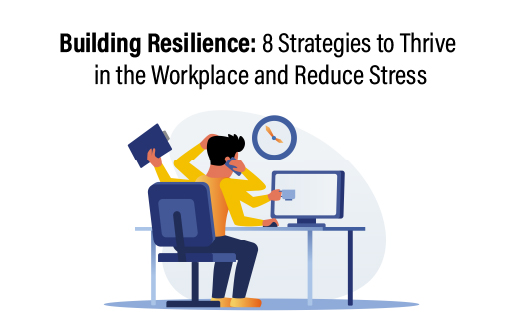- Candidates
- Login
- Set Up Account
- Create a Job Alert
- Search Tools
- Resources
- Employers

In the demanding landscape of agriculture, where work and life intersect in unique ways, stress can become an ever-present companion. For those navigating the challenges of the modern agricultural workforce, building emotional resilience is not just a skill-it's a necessity. In this article, we offer eight well-proven strategies to help you not only survive but thrive amidst the intense pressures of the agricultural world.
#1 Fostering a Healthy Manager-Employee Relationship
The relationship you share with your manager can significantly affect your mental health. It's no exaggeration to say that managers wield an influence comparable to that of a spouse in terms of their impact on your well-being. A staggering 69% of employees have reported that their manager's actions have a profound effect on their mental health, surpassing the influence of their doctor (51%) or therapist (41%). Building a trusting relationship with your manager takes time and sometimes involves challenging conversations.
Suggested Further Reading : Crucial Conversations: Tools for Talking When the Stakes Are High
#2 Setting Clear Boundaries
Maintaining a work-life balance is essential to mitigating stress and promoting overall well-being. In the world of agriculture, where the boundaries between work and personal life can blur, setting clear parameters is vital. Effective communication and time management are the keys to establishing these boundaries, ensuring your well-being is not compromised.
#3 Maintaining a Healthy Lifestyle
A balanced diet, regular exercise, and adequate sleep are fundamental to physical and mental resilience. Regular exercise plays a significant role in stress reduction by regulating the release of cortisol, the body's stress hormone. Beyond the immediate benefits of relaxation after physical activity, long-term advantages include increased physiological resistance to stress. Try taking a walk a lunch or turning a regular one-on-one meeting into a walking meeting for an easy way to add exercise to your day.
Suggested Further Reading: "Why Zebras Don't Get Ulcers" by Robert M. Sapolsky
#4 Cultivate a Growth Mindset
Do you possess a fixed or growth mindset? Cultivating a growth mindset can help you navigate change and make stressful situations more manageable. By understanding yourself better, you can learn to alter the way you think, ultimately reducing stress. To assess your mindset and explore how shifting your perspective can alleviate stress, consider taking a free Growth Mindset Test.
#5 The Role of Humor
In the world of agriculture, where challenges can be as unpredictable as the weather, humor becomes a valuable coping mechanism. Laughter can alleviate stress, improve mood, and foster resilience. Learning to find the humor in difficult situations can make a bad day more enjoyable.
#6 The Power of Breathwork
Breathing exercises and mindfulness techniques are potent tools for stress management. Deep breathing and meditation can help you stay calm and focused during demanding workdays. Incorporating breathwork practices into your daily routine can be a game-changer for reducing workplace stress. For Apple users, there are free breathwork apps built into your phone and watches and lots of free breathing
exercises on YouTube.
#7 Building a Robust Support Network
A strong support network is a cornerstone of resilience. Seek out mentors, friends, and colleagues who can offer guidance, lend a listening ear, or provide a fresh perspective. These relationships can be your lifeline during challenging times.
#8 Seek Professional Help When Necessary
If the weight of workplace stress becomes unbearable, it's crucial to recognize when professional help is
needed. Seeking the guidance of a mental health professional can provide valuable strategies for coping
with stress, anxiety, and other emotional challenges. It's a sign of strength, not weakness, to reach out for
help when necessary.